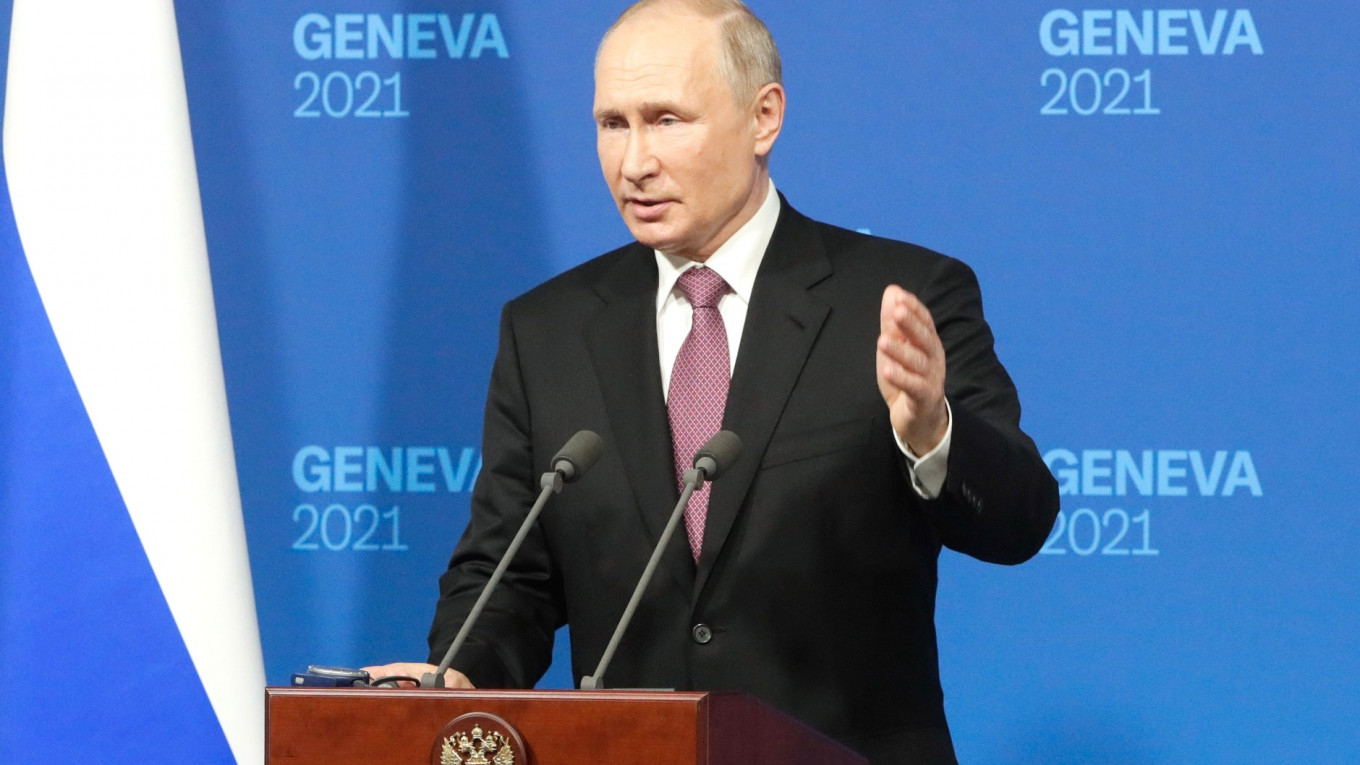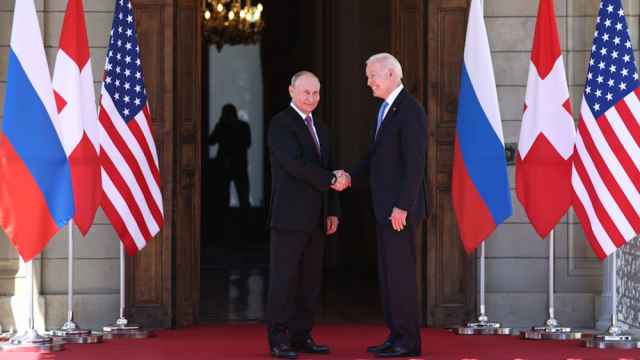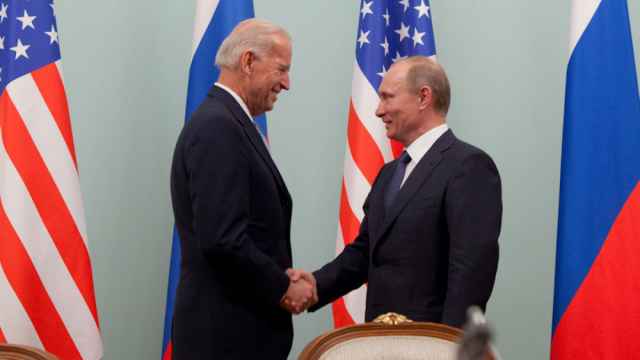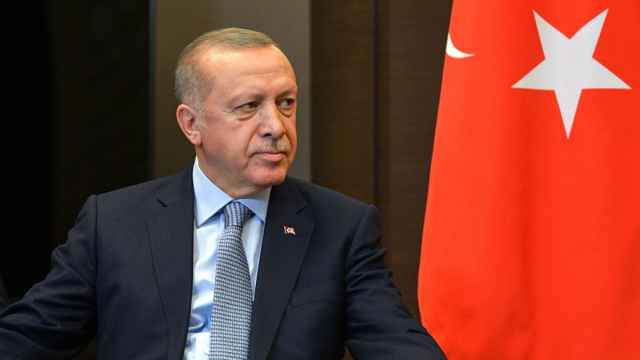Russian officials expressed cautious optimism following President Vladimir Putin’s first summit with U.S. President Joe Biden in Geneva on Wednesday while Kremlin critics derided the Russian leader’s remarks.
Senior diplomats hailed the joint Putin-Biden statement that a “nuclear war cannot be won” — the only adopted document following the four-hour talks — as a “step toward restoring common sense” in international security.
Observers said Biden’s description of Russia as a fellow “great power” and clear outlining of Washington's “red lines” were likely crucial first steps in easing bilateral tensions. Yet the two delegations still faced deeply entrenched differences on human rights and other issues.
Here’s a look at more reactions from prominent Russians:
— Kremlin spokesman Dmitry Peskov:
“Even though it’s a very short text, the joint statement on strategic stability realizes the special responsibility of our two countries not only to our people but to the whole world.”
— Deputy Foreign Minister Sergei Ryabkov, member of the Geneva delegation:
“We’re pleased that we were able to put on paper the intention to start a substantive and active dialogue in this area.”
“Frankly speaking, we’ve experienced growing doubts in recent years about Washington’s readiness to adhere doctrinally and conceptually to this only possible and sound position, if we talk about responsibility over the fate of the world.”
“After all, this is the only way responsible nuclear powers with the largest nuclear arsenals can behave in the modern world.”
— State Duma deputy and member of the international affairs committee Sergei Zheleznyak:
“The summit could become an impetus to reduce tensions between our countries and gradually restore trust, though it’s a two-way road.”
“Putin’s positive assessment of the meeting with Biden suggests that our countries have prospects for restoring cooperation in those areas where Russian-U.S. cooperation is necessary in the interests of peace and sustainable development.”
Despite the generally positive outcome, Putin’s spokesman Dmitry Peskov said there’s “still no reason” to remove the U.S. from Russia's list of “unfriendly countries” that the Kremlin adopted last month.
— State Duma lawmaker and chairman of the international affairs committee Leonid Slutsky:
“The first Putin-Biden summit can be considered, if not successful, then a step toward detente and the removal of an 'overload' in bilateral relations.”
“The negotiations may have somehow exceeded skeptics’ expectations, but you shouldn’t fall into euphoria either.”
Opposition figures reacted positively to Biden’s pledge to continue raising concerns over human rights in Russia, which he highlighted at a post-summit press conference held separately from Putin.
— Russian opposition figure Vladimir Kara-Murza:
“For the first time in many many years, we saw an American president put the issue of human rights front and square in these bilateral talks.”
“For many, many years, we have seen American presidents of both parties completely ignore this issue in the hope — I guess — of finding some sort of accommodation with Putin on the international stage. Apart from being completely immoral, this approach is impractical because, when it comes to Russia, domestic repression and external aggression are two sides of the same coin.”
Meanwhile, Putin’s blaming Kremlin critic Alexei Navalny’s imprisonment on his “fully cognizant” departure abroad to seek treatment for poisoning (he was evacuated from Siberia to Germany while in a coma last summer) raised eyebrows at home.
— Navalny’s wife Yulia Navalnaya:
In an Instagram post with a photo of Navalny in a stretcher on an airport runway, Navalnaya wrote: “I kept a photo of how Alexei, deliberately ignoring the requirement to report in an inspection ‘went abroad for treatment’.”
Navalny supporters also seized on Putin’s unfounded claims that Russia’s opposition was branded “extremist” recently because it “gave public instructions on how to make Molotov cocktails.”
His Anti-Corruption Foundation, which was recently outlawed within Russia as an “extremist” organization, linked to a website promoting the “Smart Vote” strategy to unseat pro-Kremlin lawmakers and said: “We have something better than a Molotov cocktail.”
A Message from The Moscow Times:
Dear readers,
We are facing unprecedented challenges. Russia's Prosecutor General's Office has designated The Moscow Times as an "undesirable" organization, criminalizing our work and putting our staff at risk of prosecution. This follows our earlier unjust labeling as a "foreign agent."
These actions are direct attempts to silence independent journalism in Russia. The authorities claim our work "discredits the decisions of the Russian leadership." We see things differently: we strive to provide accurate, unbiased reporting on Russia.
We, the journalists of The Moscow Times, refuse to be silenced. But to continue our work, we need your help.
Your support, no matter how small, makes a world of difference. If you can, please support us monthly starting from just $2. It's quick to set up, and every contribution makes a significant impact.
By supporting The Moscow Times, you're defending open, independent journalism in the face of repression. Thank you for standing with us.
Remind me later.






